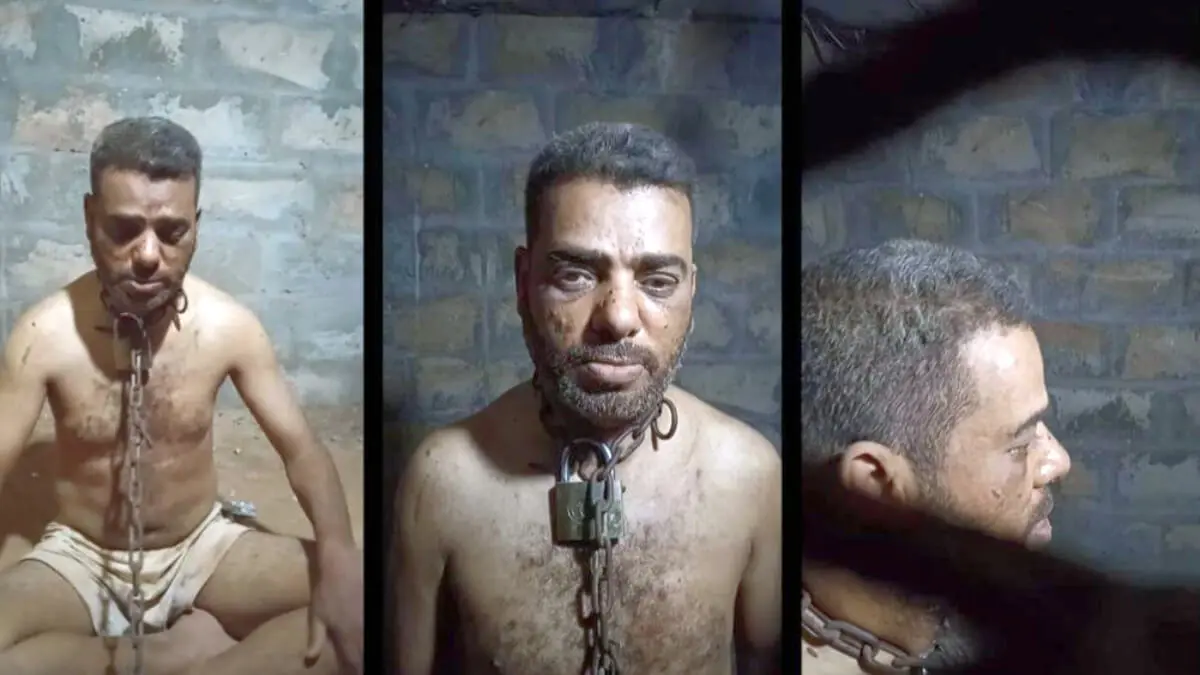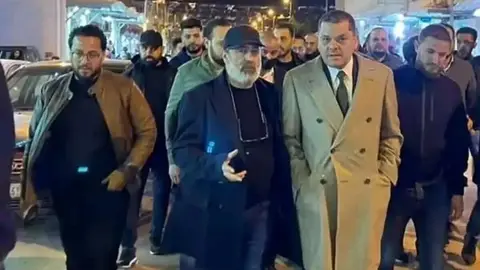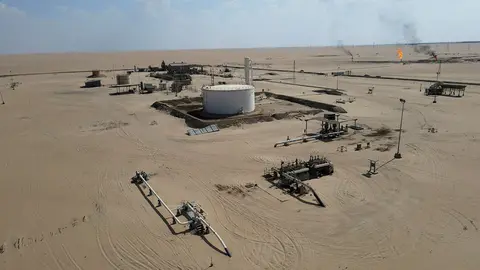A scandal rocks Libya and demands international intervention

- Background to the incident
- Local and international reactions
- Public reaction and political repercussions
- Calls for justice
In a shocking incident that has shocked both Libyan and international public opinion, social media has shared videos showing Libyan MP Ibrahim Al-Dersi, who disappeared almost a year ago, in degrading and inhumane conditions of detention.
The images show Al-Dersi chained by the neck, dressed only in his underwear and showing clear signs of torture and extreme exhaustion. Described as ‘horrific’ and ‘distressing’, the images have sparked widespread outrage and urgent calls for an independent international investigation to clarify the circumstances of the case and bring those responsible to justice.
Background to the incident
Ibrahim Al-Dersi, a prominent Libyan parliamentarian, disappeared in mysterious circumstances approximately one year ago, raising numerous questions about his whereabouts.
According to some reports, his disappearance may be linked to his public criticism of the concentration of power in eastern Libya. These statements made him a target of attacks in the context of the deep political division that has plagued Libya since the fall of Muammar Gaddafi's regime in 2011. The country remains divided between the internationally recognised Government of National Unity (GNA), based in Tripoli, and a rival government in the east, backed by the forces of Marshal Khalifa Haftar, exacerbating human rights violations, including arbitrary arrests and torture.
The leaked images, first broadcast by the Libya Al Ahrar channel on 5 May 2025, show Al-Dersi inside a cell, pleading for his release. Al-Dersi's family confirmed the authenticity of the images based on distinctive marks on his body and categorically denied any claims that they were fabricated using artificial intelligence technology. The leaks have revealed the dark side of the security situation in eastern Libya, further intensifying political tensions.
Local and international reactions
The images have sparked widespread condemnation. The United Nations Support Mission in Libya (UNSMIL) expressed its ‘deep shock’ at the images and called for an independent investigation to verify the circumstances of Al-Dersi's detention. The mission emphasised that torture, arbitrary detention and enforced disappearances are serious human rights violations that could constitute international crimes that could be tried before the International Criminal Court (ICC). It also called for the release of all arbitrarily detained persons in Libya and the prosecution of those responsible.
For its part, the Tripoli-based Government of National Unity issued a statement through its Prime Minister, Abdulhamid Dbeibah, describing the images as ‘great social shock’ and noting that it was aware of the existence of other images showing other political figures subjected to similar treatment. The government condemned the ‘degrading and horrific’ conditions shown and held the Speaker of the House of Representatives, Aguila Saleh, responsible for his silence on the incident, demanding an urgent international investigation under the supervision of an independent international body.
Initially, the interior ministry of the rival eastern government rejected the accusations against Haftar's forces, claiming that Al-Dersi had been ‘kidnapped by an unknown criminal group’ and that the images were ‘fabricated’ to tarnish the reputation of the Libyan Armed Forces.
However, in a subsequent U-turn, the Ministry backtracked during a meeting with Al-Dersi's family, admitting that the recordings were authentic. This change of position raised further doubts about the credibility of the initial version and the role of the security agencies in eastern Libya. Aguila Saleh called on the attorney general and the interior minister to investigate the case, but these statements were met with harsh criticism, especially after the live broadcast of the parliamentary session discussing the incident was interrupted, raising suspicions about the transparency of the handling of the matter.
Public reaction and political repercussions
On social media, Libyans expressed shock and outrage at the images, saying they reflected the ‘harsh reality’ in eastern Libya under militia control.
This scandal is unfolding in a tense political climate, with Libyans suffering from deep divisions and ongoing human rights violations. According to United Nations reports, arbitrary arrests and torture have become widespread in the absence of the rule of law. The Al-Dersi case has become a symbol of the challenges Libya faces in achieving justice and protecting the rights of its citizens, including parliamentarians, who are supposed to enjoy legal immunity.
Calls for justice
Calls for an independent international investigation are growing, with human rights organisations emphasising the need for those responsible for these violations to be held accountable. The fate of Ibrahim Al-Dersi remains unknown, raising serious questions about the ability of the Libyan authorities to protect their citizens. This case is not only a humanitarian scandal, but also an urgent call for the international community to intervene and end the cycle of impunity in Libya and ensure justice for the victims.










